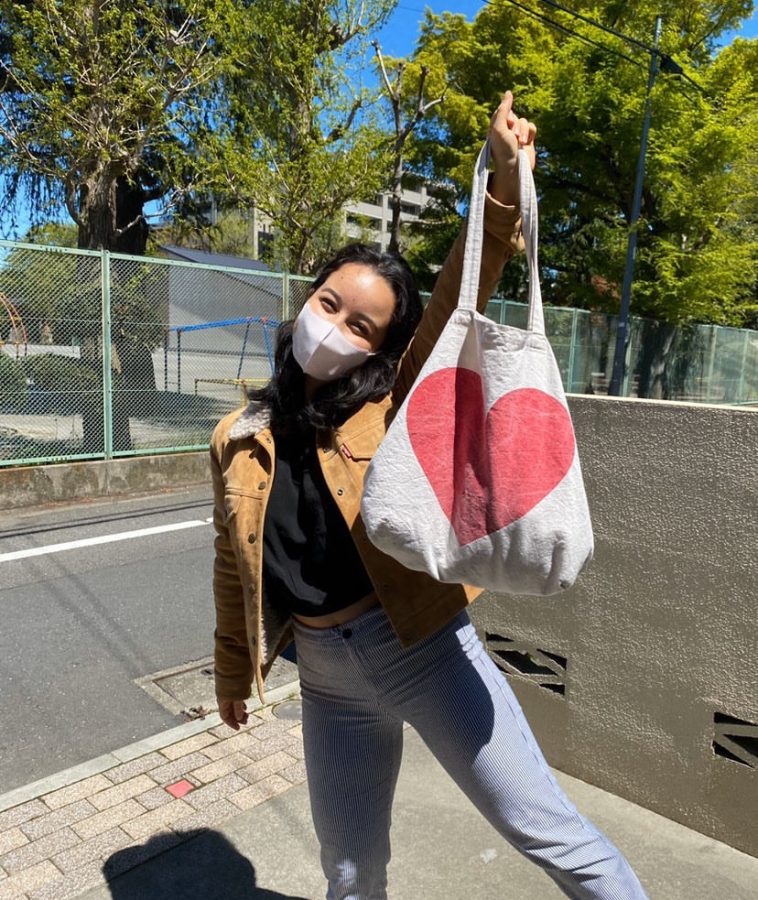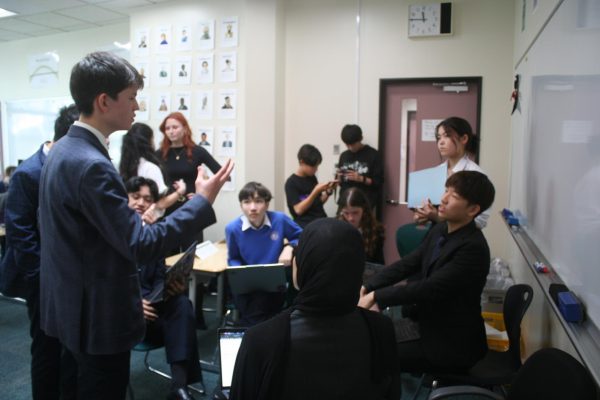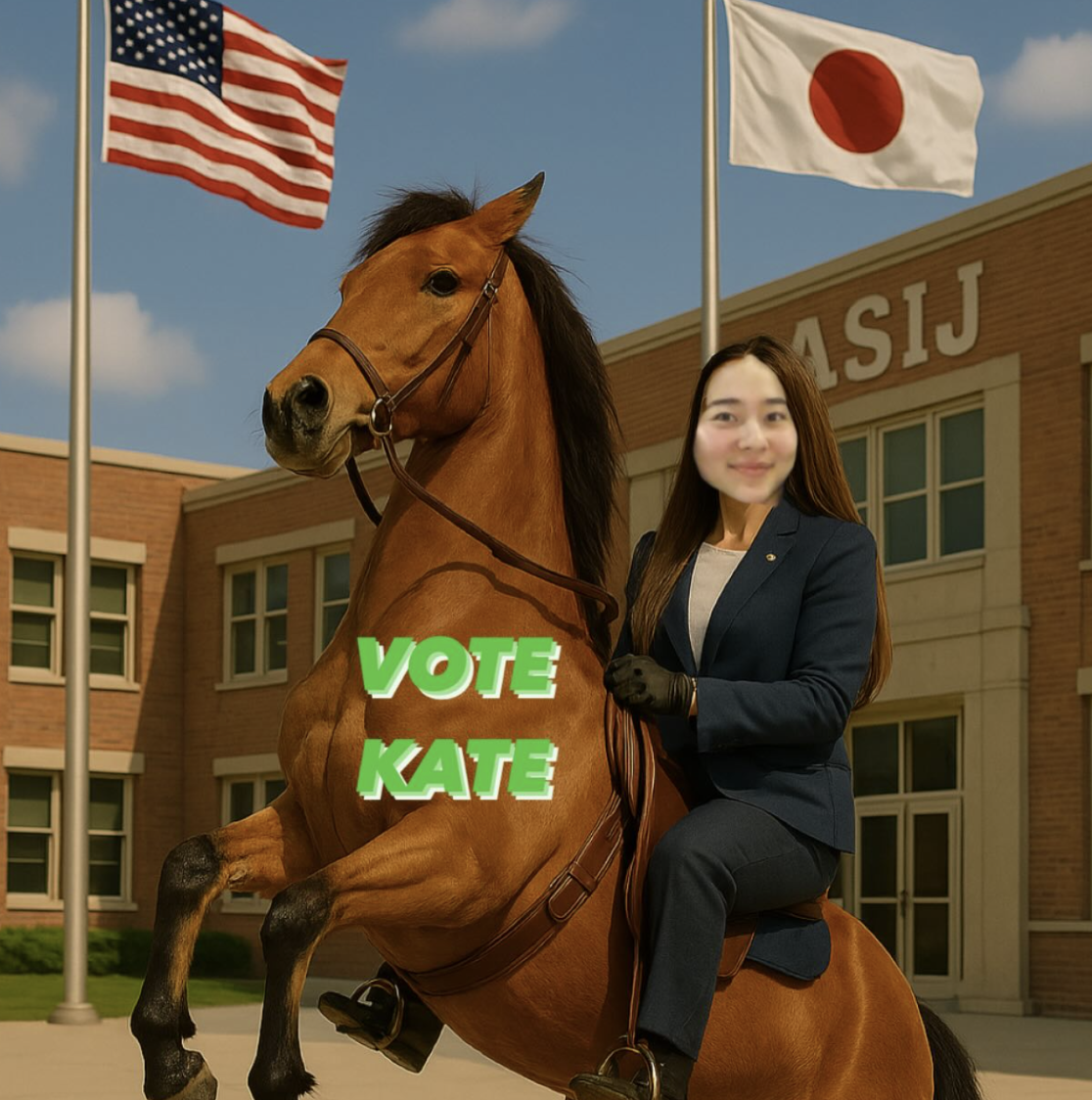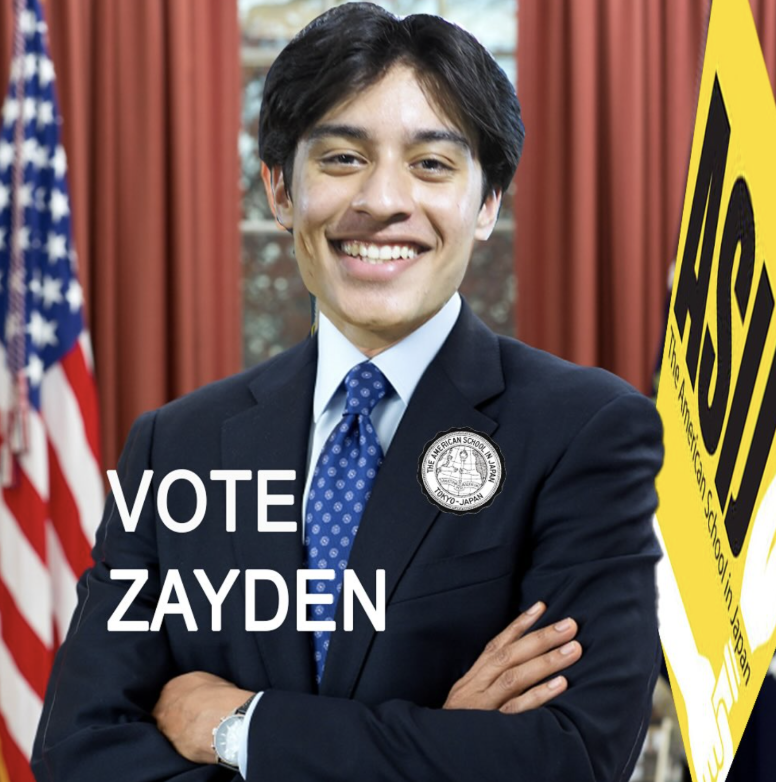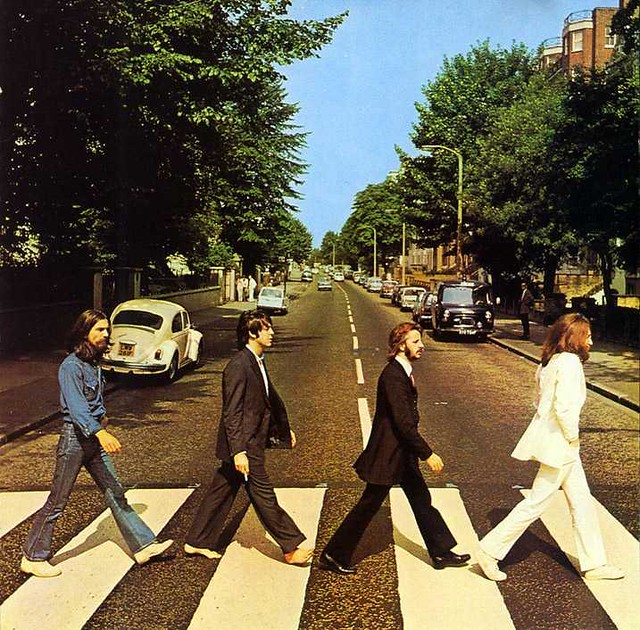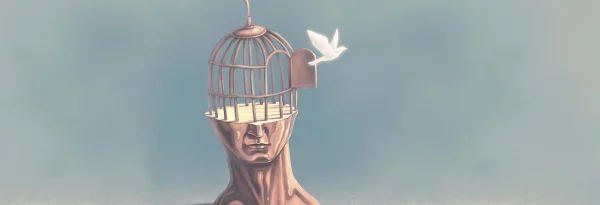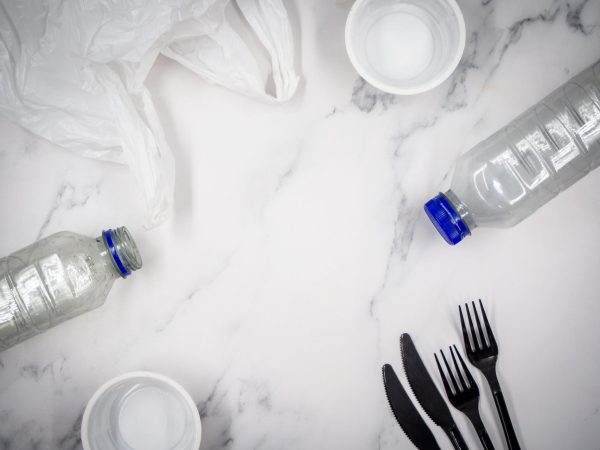The Psychology of Isolation: Student Reactions to COVID-19
Photo by Anna Komisarof
April 28, 2020
A time that will make it into history books is usually not an easy time to be alive.
This is without a doubt a year that will be described as “tragic” and “eventful” by later academics, a year that will be the subject of decades of inquiry and that has the potential to rewrite the patterns of our modern life. Yet to exist in the world right now is challenging and terrifying, even in the best of cases. The impulse is to try to make sense of it in any way one can.
In an attempt to understand the ways in which the isolation and disruption caused by COVID-19 is affecting not only those within my community, but also myself, I decided to conduct interviews with other high school students. I put out an open call for volunteers, ending up with a group of twelve juniors and seniors from both ASIJ and schools in the United States.
Over the course of a week in early April, I spoke to these students about their experiences, their fears and little joys, their thoughts on everything from school cancellation to the news cycle. I am so grateful to everyone who shared their stories (and self-timed photographs) with me.
By far the most striking change in the lives of teenagers as a result of COVID-19 has been the forced solitude. Going from attending high school, surrounded by hundreds of people daily, to rarely seeing anyone other than one’s family, is difficult to adjust to. In a regular school week, “alone time” is usually treasured as a reprieve from the fast pace of life. What happens, though, when solitude is constant and enforced?
Nearly all the people who I interviewed expressed that they are now in the opposite position from before, actively seeking out social interaction instead of time alone. Feeling connected has become a priority.
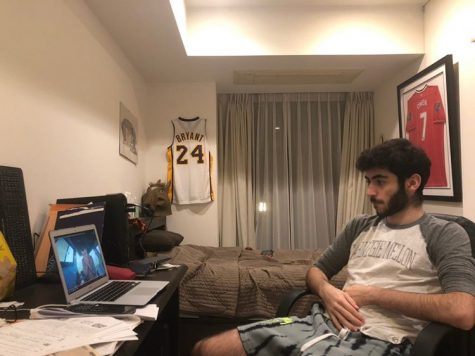
“I rarely do anything alone,” said Arman Balian (ASIJ ‘20), who explained that he stayed on calls with his friends as much as possible, whether he was doing his homework or playing video games. Other strategies that people have found for keeping social range from scheduled weekly Zoom sessions to writing letters by hand.
When I asked my interviewees what has made them the happiest in this time, time spent reaching out to friends was at the top of the list. Some even claimed that, in certain ways, they feel more connected now than before. They have also treasured the ability to spend quality time with their families — especially the seniors, who will not be living at home for much longer.
As Anna Komisarof (ASIJ ‘20) explained,“Being social for me before was a passive thing that I thought was something granted to me. But now I realize that it’s something that’s really valuable in my life and for my well-being, and since I’ve made a routine and blocked out time for that, I don’t feel very lonely. I have more time for the people I actually care about. The important relationships are strengthened.”
However, many students that I interviewed still expressed dissatisfaction with these remote or virtual methods. As great as technology is at connecting us during this time, it can’t recreate the feeling of sitting in Nogawa Park together with friends on a spring day. Cora Eaton (ASIJ ‘20) reflected, “I know that my friends care for me and I’m talking to them, but it’s definitely not the same as seeing them in person.”
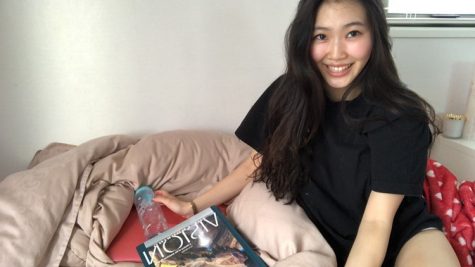
Even with the best of efforts to stay social, the current situation mandates that we spend more time alone than we are used to. Curious about how this was impacting self-identified “introverts” and “extroverts,” I asked a few students about their feelings regarding this new solitude.
Interestingly, out of the three who identified as extroverts, two claimed that the quarantine has made them into more of an “ambivert,” by forcing them to learn how to be alone. Jasmine Fou (ASIJ ‘20) said, “Before corona, I would have said I was an extrovert, but I’ve found ways to cope and I’ve been dealing with being alone kind of well.” Juri Kimura (ASIJ ‘21) echoed this, claiming, “I always thought I was an extrovert, but I now think I’m an ambivert. I don’t mind being by myself, and I like having time to myself.”

For those who identified as more introverted, the ability to regulate social interaction has been one benefit of this situation. Many claimed that they have begun to value time spent speaking with friends more, and affirmatively choose to call and reach out much more than they would in a normal school holiday.
Sebastian Duque, a high school senior from Miami, told me, “Quarantine has given me the opportunity to manage my own socialization time — in school, I’m forced to constantly socialize. Now if I want to, I can hop on Zoom, but if I don’t want to, I can have me-time. I don’t have to uphold that 8 hour schedule of school.”
Another theme that came up in my conversations was the monotony of daily life under quarantine. The inability to differentiate the days or put events on the calendar, either to look forward to or to dread, can create a sense of surreal disconnect from the passage of time. Stuck inside a single home with a small set of people, the rhythm of life changes and loses the random elements that many people enjoy.
Lilian Mathis (ASIJ ‘20) explained how she misses the ability to “compartmentalize,” separating home life and school life. Alternating between different spaces and groups of people allows one to unlock different emotional states. “Without having that switch, when we’re all in the art room laughing at something stupid, it’s too dull. I’m in the same mood all the time, the same energy all the time.”
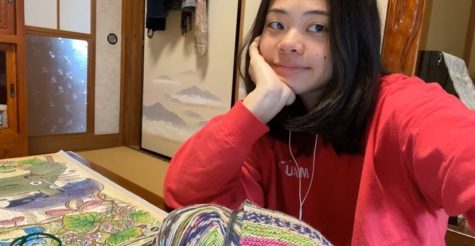
Miu Nakajima (ASIJ ‘21) said that the past two months since the school cancellation have gone by unexpectedly fast. When I asked her why, she explained, “I feel like it’s because it’s so repetitive. You wake up and you do the same thing at home.”
A few students I interviewed mentioned their reliance on routines during this time, claiming that creating a schedule has improved their overall happiness and well-being. Many others still said that, outside of synchronous learning experiences, they have left their days completely open and just “go with the flow.”
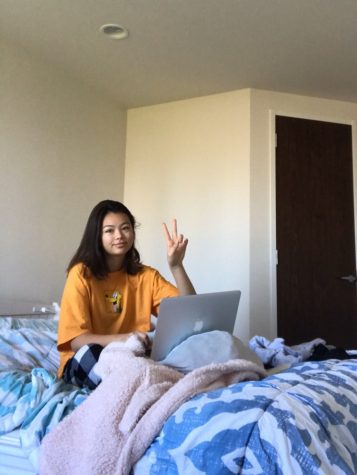
However, those who use routines had high praise for the practice. “My happiest days have been the ones I’ve been able to plan out,” said Elise Wilson (ASIJ ‘20). “Wake up at a certain time, eat the breakfast I want. Have more time to figure things out and do things the way I want to do them.”
For those with a more organization-focused personality, planning days can help by creating a feeling of agency and control over one’s life — especially during a time when they lack control over greater world events. When I asked Anna Komisarof to share one recommendation she would give to everyone else in this situation, her answer was to make a routine. “Especially for the Type A people out there. I have an Excel sheet where I block out the whole day the night before, I have a morning routine.”
Though this type of organization is the answer for some, it isn’t a panacea. Many people shared that they felt heavily pressured to be productive and organize their life, but haven’t been able to do so. Posts circulate on social media every day with vaguely threatening messages about productivity — spouting facts about Shakespeare writing King Lear and Isaac Newton inventing calculus during the plague quarantine. Seeing this, it is easy to feel guilty for not hitting some invisible benchmark of productivity during this time.
Those I interviewed often said that they were being “bad” or “lazy,” and expressed that they felt as if they should “find something productive to do.” No one seemed completely satisfied with the amount of work they were doing and what they were accomplishing, even when they said that the activities they were spending their time on were making them feel happy, or at least happier.
On the topic of productivity, one option, for those looking for something to get invested in, is journaling. Recording thoughts and emotions is always a helpful practice, especially during isolating and high-pressure times. In addition, just by writing things down, we are creating a record of this crucial moment in history that we will one day look back on.
Simone Felton, a high school senior living in San Francisco, has been journaling every day for this reason, and claims it has helped her differentiate the days. “I know I’ll want to be able to look back on this one day and be like ‘wow, this is what it was like when I lived through this crazy pandemic.’ It’s a way to chart my emotional reactions over time.”
It is helpful to have that space to unpack emotions, as some psychological effects of the pandemic are difficult to summarize or break down. It doesn’t need repeating that these are not normal times — in a global pandemic, we cannot be expected to act completely rationally and efficiently.
This is not the gap semester or year that students sometimes take after high school, in which one is expected to prioritize learning and contribute to the world. Living in the time of COVID-19 is stressful and terrifying, and we must be gentle with ourselves. The primary focus must be on ensuring our own health and that of our families. Contributing to the community or learning a new skill is fantastic. However, if you are not in the mental state to take a task like that on, you have no reason to punish yourself.
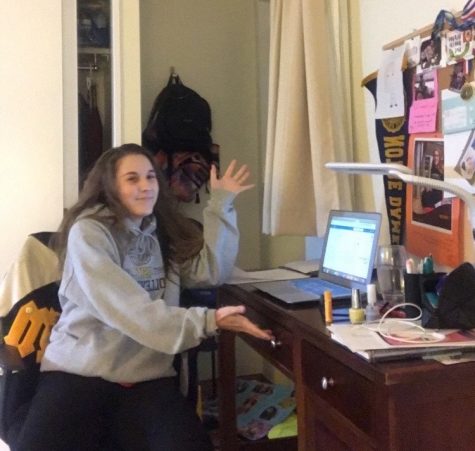
Similarly, though it is of course important to stay informed, we must strike a balance regarding how much time we spend scouring the internet for information about the pandemic. As Cora Eaton put it, “I feel like there’s a lot of misinformation out there and it requires a lot more brainpower to sift through it and figure out what is real and not real, getting concerned and worried — I don’t want to invest my time in that.”
Beyond the frustrations of not being able to spend time with friends or leave the house, there is also a much more frightening sense of powerlessness that our generation is experiencing. We are not in political office, and we were not able to vote for those who currently are. Even if we commit to social distancing, there is no way for us to force everyone in our community to take the same precautions.
There is a great amount of uncertainty, with nothing definite about the upcoming months. As a senior myself, I have run the question of whether college will open this fall around in my head a million times, and come up with nothing.
“I’m somebody that really likes to be in control of my everything. The thought of feeling so powerless, there’s a lack of information, and everything that I can do depends on other people,” said Sebastian Duque, when I asked him what the biggest struggle had been.
All of these feelings, unfortunately, are the reality of the situation. We have no way of knowing when this will end, and there is a lot that we cannot change. So how are we going to be happy?
First, let’s look at the ways that my interviewees are finding joy in their lives. Knitting, going on walks, reading books, playing board games, cooking, journaling, playing instruments, exercising, and connecting with friends and family — those are some of the answers they gave when I asked what has made them the happiest. A commonality here is that all of these activities require a certain amount of presence and awareness. They allow one to engage with their own minds and bodies, or with the spaces, objects, and people around them.
The idea I have finally come to, about how to find a bit of happiness in this time, is as simple as this: While we stay at home, we must be “at home” within ourselves. Instead of agonizing over what will happen in the next few months, or mourning what we have already lost of normal life, we must try to be fully immersed in the present moment. This means doing what we enjoy, connecting with the people we love, and actively staying in touch with our own emotions.
Whether we feel pain or joy will not change the course of global events. However, we can make a commitment to lessen the burden on ourselves and the people within our households, just by choosing happiness.
Just as Maya Russell (ASIJ ‘20) put it, “If this shows anything, it’s that the world will stop but you will keep going.”

